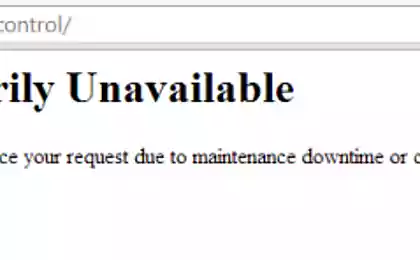232
Why it is important to have reliable DDoS protection in the modern world: 3 arguments
A DDoS attack is a cyber attack on a network resource or service that makes it inaccessible to visitors. Such an attack is carried out by artificially created avalanche-like growth of requests to the online resource. Because of this, the server cannot withstand the load, as a result of which the operability of the IT infrastructure and client services is disrupted. Many companies and regular websites face DDoS attacks.
Who is at risk and how to protect against DDoS attacks?

Most often, DDoSs are affected by:
Argument #1. The company’s website will always be available to users.
For many businesses, it’s vital that their website runs smoothly 24/7. This is especially true for online stores. If the resource “falls” and becomes inaccessible, then customers simply cannot go to the site to place an order. If there is no protection, then systematic DDoS attacks will lead to the fact that the site will be offline for a long time, which in turn will almost put an end to online sales and interaction with customers over the network.
Argument #2. No reputational loss
Reputation is an important part of any business. The seriousness of the company is largely indicated by the stability of its official resource - the corporate website. If a potential customer tries to visit the site and it does not work, then he may be disappointed in the company.
Argument #3. Prevention of financial losses
In DDoS attacks, financial losses can be of two types:
Who is at risk and how to protect against DDoS attacks?

Most often, DDoSs are affected by:
- websites of large companies;
- websites of government organizations;
- online shops;
- marketplaces;
- online learning services;
- messengers;
- social media.
Argument #1. The company’s website will always be available to users.
For many businesses, it’s vital that their website runs smoothly 24/7. This is especially true for online stores. If the resource “falls” and becomes inaccessible, then customers simply cannot go to the site to place an order. If there is no protection, then systematic DDoS attacks will lead to the fact that the site will be offline for a long time, which in turn will almost put an end to online sales and interaction with customers over the network.
Argument #2. No reputational loss
Reputation is an important part of any business. The seriousness of the company is largely indicated by the stability of its official resource - the corporate website. If a potential customer tries to visit the site and it does not work, then he may be disappointed in the company.
Argument #3. Prevention of financial losses
In DDoS attacks, financial losses can be of two types:
- Lack of income due to the inability of customers to order a service or product. In this case, the business loses customers and profits.
- The need to pay the ransom. Often, hackers carry out attacks on various resources and services in order to subsequently demand money from the owner to stop the attack. This is a blackmail scheme where a business owner is forced to pay criminals to leave his resource. Usually, the larger the company, the more money the attackers demand.
With such women, any man will succeed in business, the strongest ladies in the zodiac sign
How to choose a kitchen sink






















